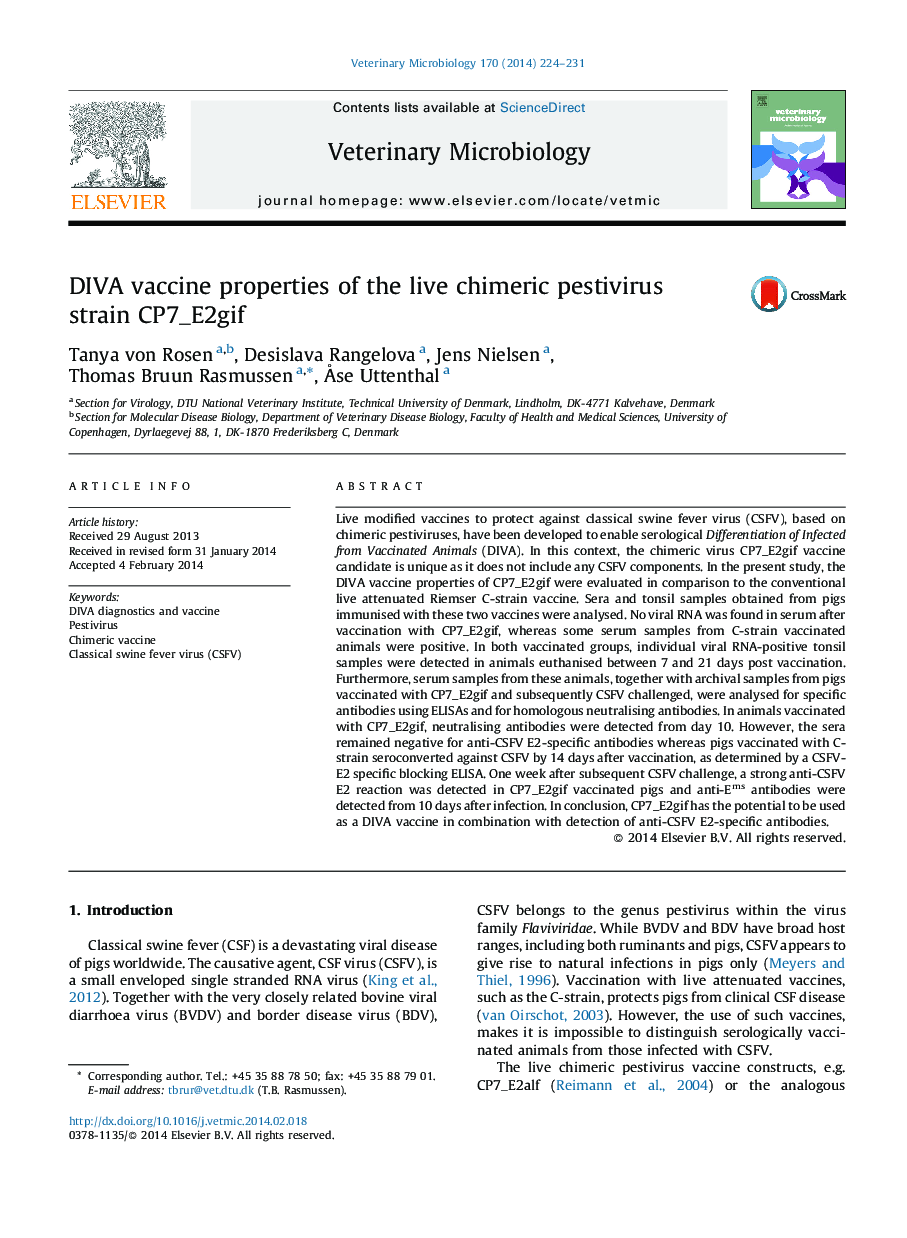| Article ID | Journal | Published Year | Pages | File Type |
|---|---|---|---|---|
| 5800733 | Veterinary Microbiology | 2014 | 8 Pages |
Live modified vaccines to protect against classical swine fever virus (CSFV), based on chimeric pestiviruses, have been developed to enable serological Differentiation of Infected from Vaccinated Animals (DIVA). In this context, the chimeric virus CP7_E2gif vaccine candidate is unique as it does not include any CSFV components. In the present study, the DIVA vaccine properties of CP7_E2gif were evaluated in comparison to the conventional live attenuated Riemser C-strain vaccine. Sera and tonsil samples obtained from pigs immunised with these two vaccines were analysed. No viral RNA was found in serum after vaccination with CP7_E2gif, whereas some serum samples from C-strain vaccinated animals were positive. In both vaccinated groups, individual viral RNA-positive tonsil samples were detected in animals euthanised between 7 and 21 days post vaccination. Furthermore, serum samples from these animals, together with archival samples from pigs vaccinated with CP7_E2gif and subsequently CSFV challenged, were analysed for specific antibodies using ELISAs and for homologous neutralising antibodies. In animals vaccinated with CP7_E2gif, neutralising antibodies were detected from day 10. However, the sera remained negative for anti-CSFV E2-specific antibodies whereas pigs vaccinated with C-strain seroconverted against CSFV by 14 days after vaccination, as determined by a CSFV-E2 specific blocking ELISA. One week after subsequent CSFV challenge, a strong anti-CSFV E2 reaction was detected in CP7_E2gif vaccinated pigs and anti-Erns antibodies were detected from 10 days after infection. In conclusion, CP7_E2gif has the potential to be used as a DIVA vaccine in combination with detection of anti-CSFV E2-specific antibodies.
